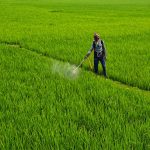• Expresses concern over rising diabetes cases; calls for awareness to control disease
• Says 1.5 lakh Health and Wellness Centres being set up across country
• Releases first-of-its-kind, largest ICMR-India Diabetes ‘INDIAB’ study
Jammu, Oct 20: Union Minister Dr Jitendra Singh, who is also a nationally renowned diabetologist, on Sunday released the Jammu-related data of the “first of its kind” world’s largest survey, the ‘ICMR-India Diabetes (INDIAB) Study’, to assess the prevalence of diabetes in India, including in Jammu & Kashmir.
According to the survey, the overall burden of the disease in the Jammu region, covering its 10 districts, is 18.9 percent, with 26.5 percent in urban areas and 14.5 percent in rural areas, which is higher than the national average.
Expressing concern over the rising cases of diabetes in the region, Dr Singh called upon everyone, including medical institutions, NGOs, and the media, to create awareness in society about the disease in order to prevent and control it before it assumes an alarming proportion. He said, “This study offers an opportunity for prevention and control of Non-Communicable Diseases (NCDs).”
The union minister called for adopting a multi-sectoral approach involving the government, non-governmental agencies, the community at large, as well as individuals, to slow down or stop the rising tide of diabetes and other NCDs. Describing the ICMR-India Diabetes (INDIAB) nationwide study as a landmark, he said its findings will help to estimate the health burden due to diabetes, prediabetes, and metabolic NCDs. “The study will also help in shifting focus to the prevention and control of diabetes and other NCDs in the Union Territory of Jammu and Kashmir,” he said.
Dr Jitendra said the findings of the study are expected to help policymakers, health professionals, and stakeholders to develop targeted interventions for the prevention and management of diabetes and other NCDs in Jammu and across India, as it is a national responsibility. “There is a need for early detection of the disease, as well as the importance of breaking the chain of transmission from one generation to another by focusing on diabetic pregnant women,” he stressed, adding that all-out efforts must be made to prevent the youth from falling prey to this preventable disease.
Calling the youth the architects of a “Viksit Bharat,” the minister said that proper care of their health and well-being must be taken by all stakeholders. “The energy and potential of youngsters cannot be consigned to this silent killer, but must be nurtured and preserved to realize the goal of a developed India by the year 2047,” he added.
Dr Singh informed that the government is setting up nearly 150,000 Health and Wellness Centres all over the country with a focus on the prevention and control of NCDs like diabetes, hypertension, and some forms of cancer. He credited Prime Minister Narendra Modi with bringing a preventive healthcare ecosystem to the country, saying, “Before the COVID pandemic, this concept was alien to India.”
“Credit goes to Prime Minister Narendra Modi for awakening the nation to the virtues of preventive healthcare, using traditional medicines like Ayurveda and Unani, and practising yoga for health. It is at the initiative of PM Modi that 1.5 lakh wellness centres are to be opened across the country,” he said
The Union Minister called for tapping the vast expanse of unexplored Himalayan resources of J&K, saying these resources have huge potential for adding value to India’s economy. He expressed happiness at the recent impressive economic growth of India and said that India has now joined the league of the top five economies of the world. The journey from the “fragile five” to the top five economies of the world has been momentous, he added.
Further elaborating, Dr Jitendra said, “If the vast bio-resources of J&K are tapped, they will contribute to India’s growth story in the times to come.”
According to the ICMR-INDIAB study, 10.8 percent of the population in the Jammu region is affected by prediabetes, calling for urgent need for action against the growing burden of NCDs in the region.
The Jammu phase surveyed 1,520 participants across urban and rural areas, providing critical insights into the region’s health landscape. As per the survey, the overall prevalence of hypertension, generalised obesity, and abdominal obesity in Jammu is 27.1%, 41.7%, and 62.7%, respectively. The study was conducted by the Madras Diabetes Research Foundation in collaboration with ICMR and the Department of Health Research.










